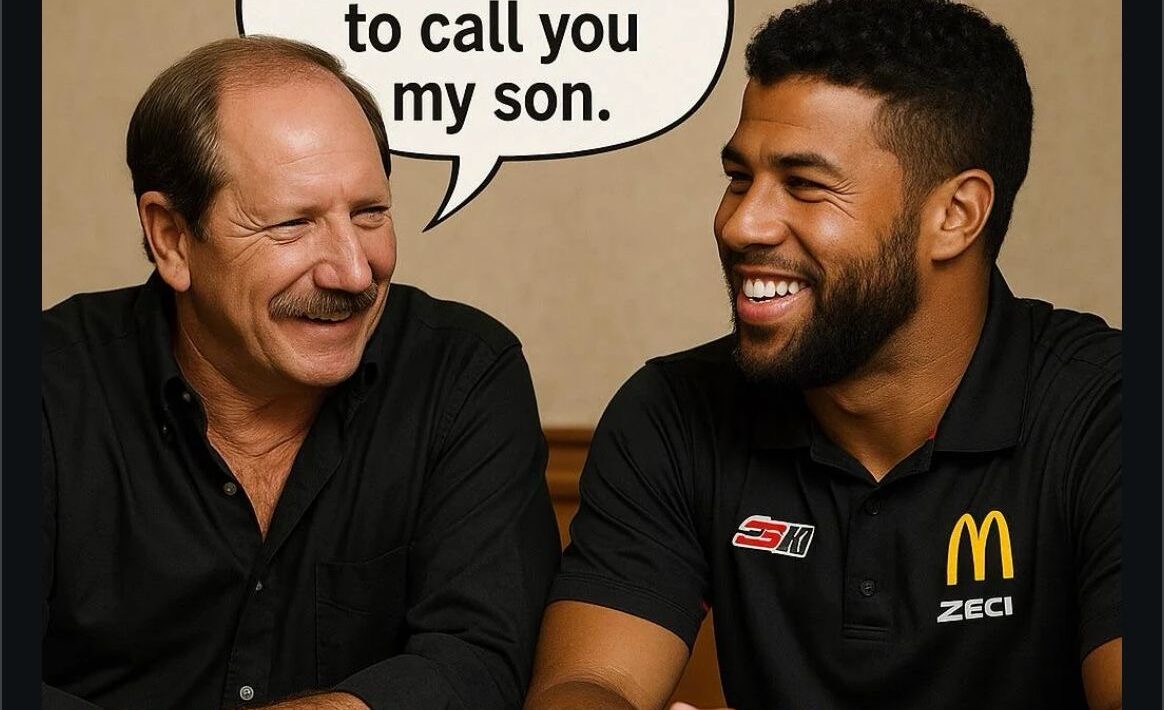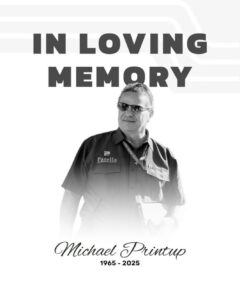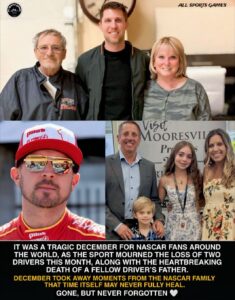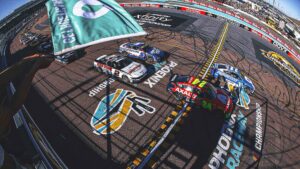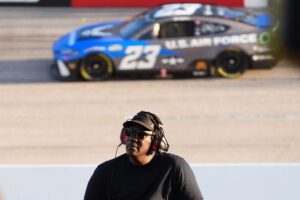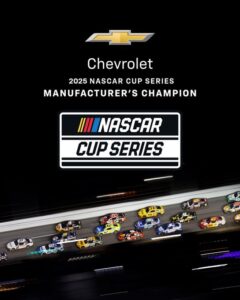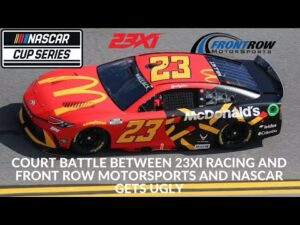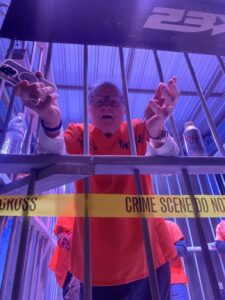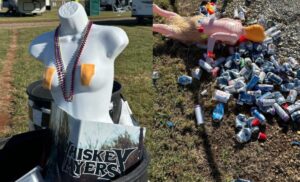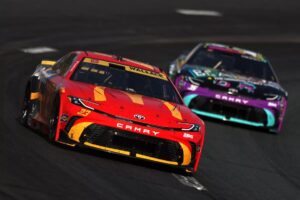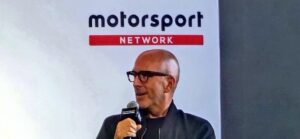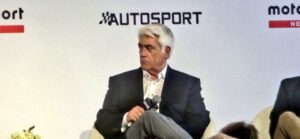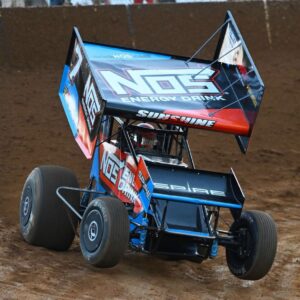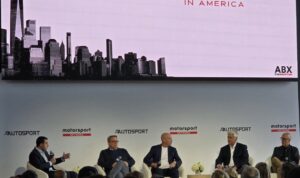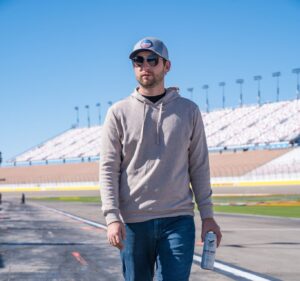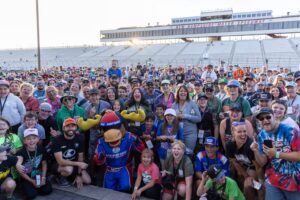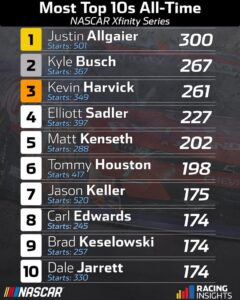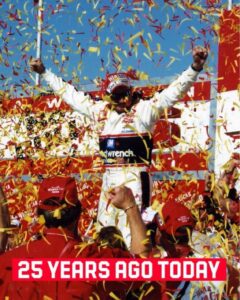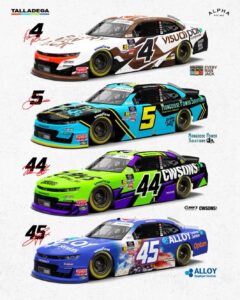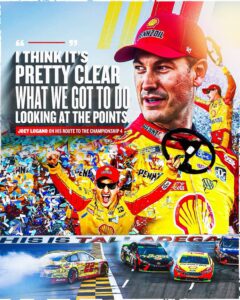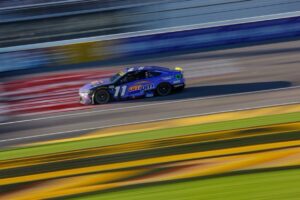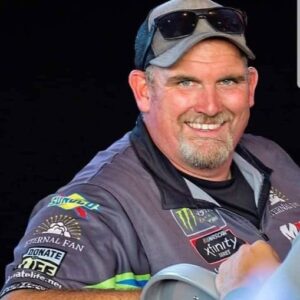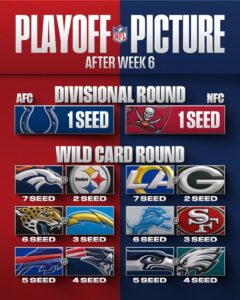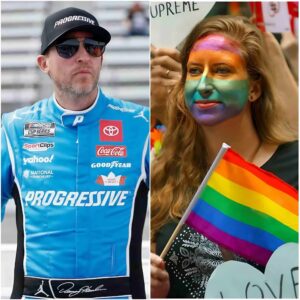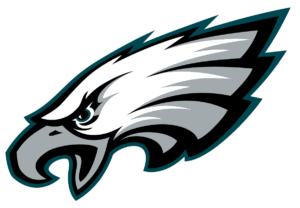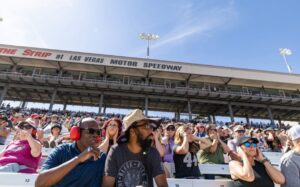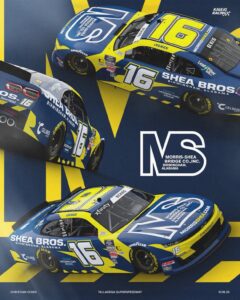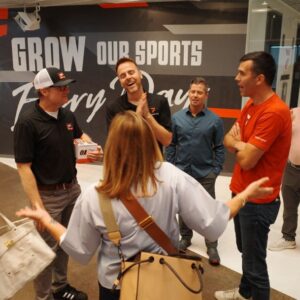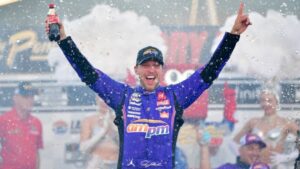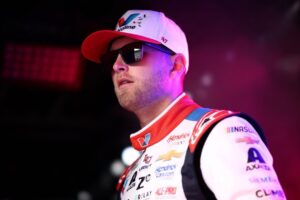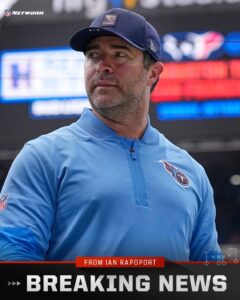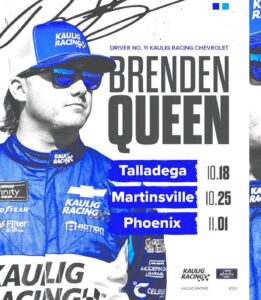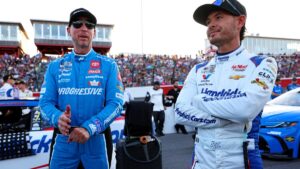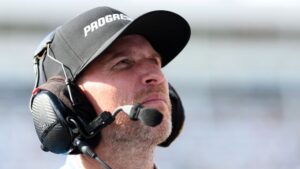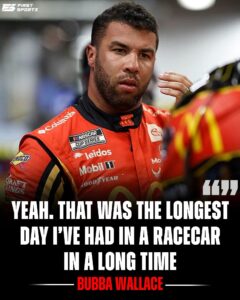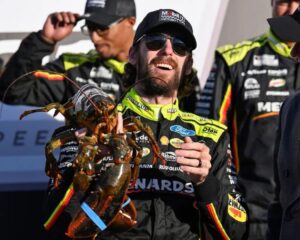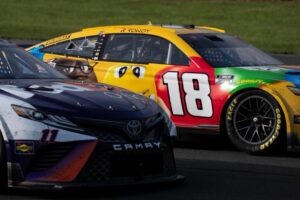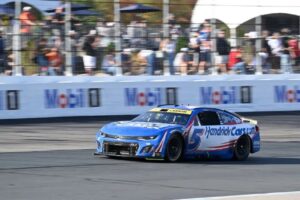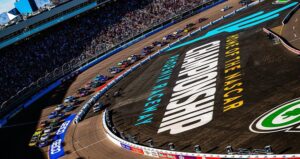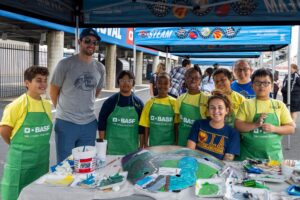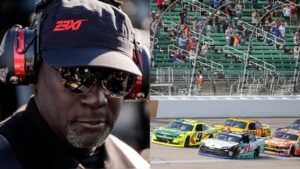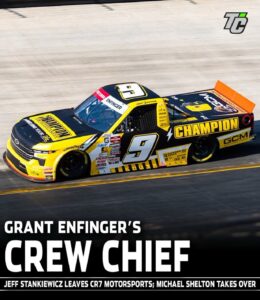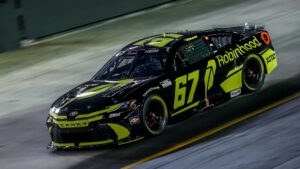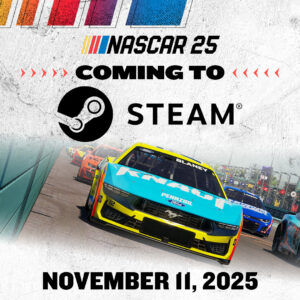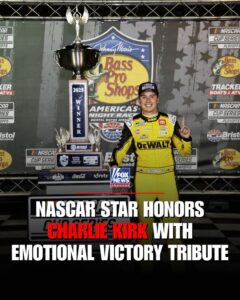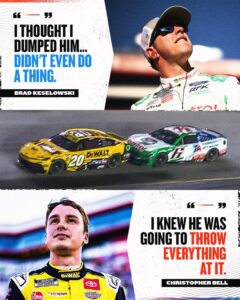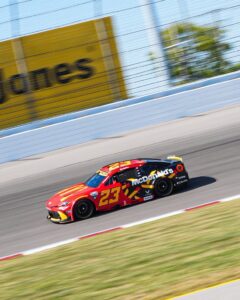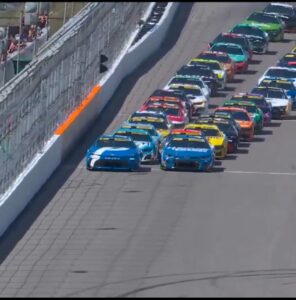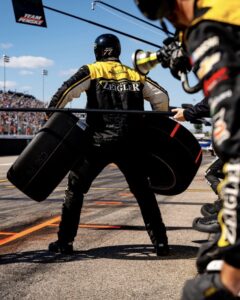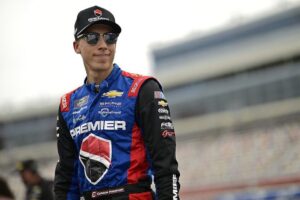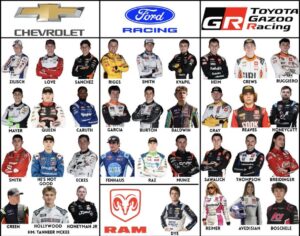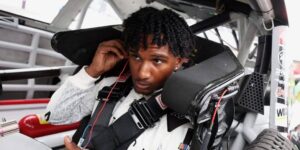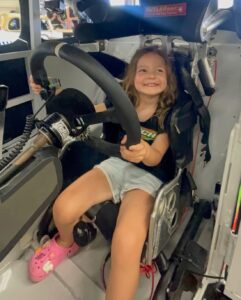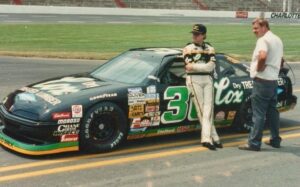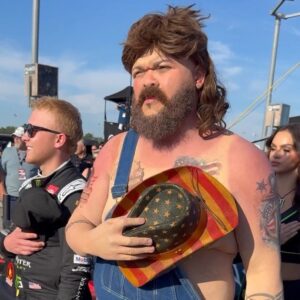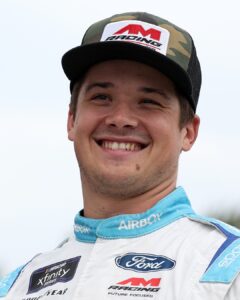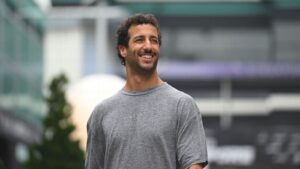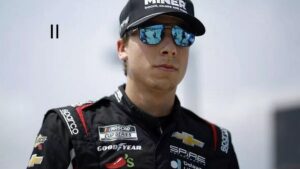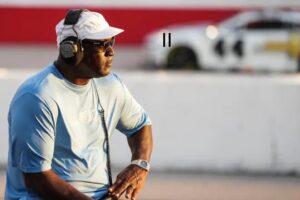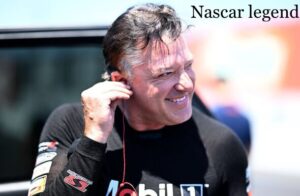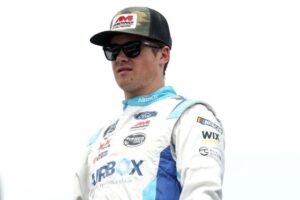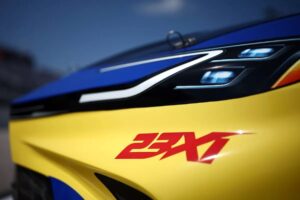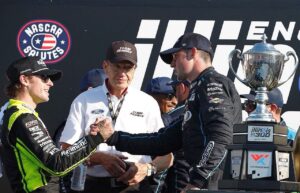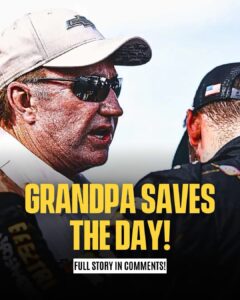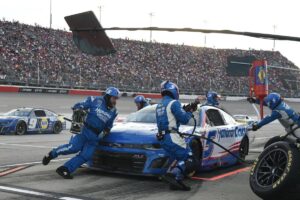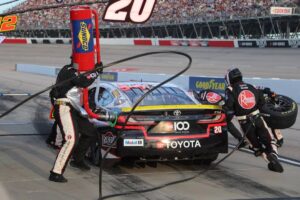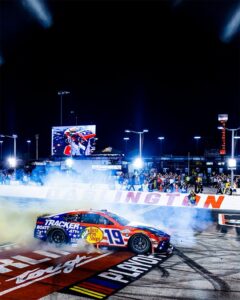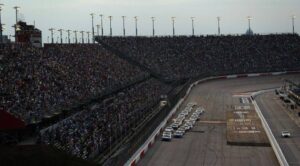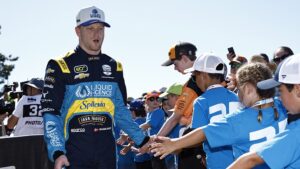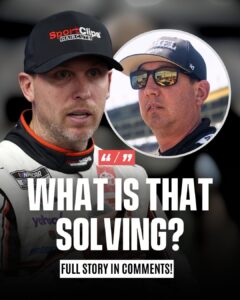It might be a hot take—but it’s one worth exploring: if Dale Earnhardt Sr. were still alive today, there’s a real chance he would’ve taken Bubba Wallace under his wing at Dale Earnhardt Inc. (DEI). Not just as a driver, but as someone he believed in, someone he stood by—especially when the hate, racism, and ignorance came pouring in.
Dale Sr.: The Man Behind the Intimidator
Dale Earnhardt wasn’t just NASCAR’s fiercest competitor—he was also someone who quietly but powerfully shaped the lives of those around him. Behind the iconic black No. 3 and the hard-nosed persona was a man who respected grit, honesty, and authenticity. He stood up for the underdog and backed drivers who showed heart, even if they came from different backgrounds or weren’t traditional NASCAR picks.
He gave opportunities to people like Steve Park, who wasn’t from the South, and who came up through the ranks in a very different way. Dale didn’t care about where you were from—he cared about what you could do on the track and who you were when the helmet came off.
Enter Bubba Wallace
Bubba Wallace is the only full-time Black driver in NASCAR’s top series and has become a lightning rod for both support and criticism in a sport that’s been historically slow to diversify. Through Confederate flag bans, social justice stances, and online hate, Bubba has weathered storms that few athletes have to deal with—especially in a community as tight-knit and traditional as NASCAR.
And yet, he’s done it with grit. With class. And with fire.
Those are exactly the qualities Dale Sr. respected.
A DEI Home for Bubba?
If DEI were still a powerhouse in the sport today, Dale would’ve likely seen in Bubba what he always looked for: toughness, resilience, and passion for the sport. He would’ve seen a young man carrying the weight of change on his shoulders and stepped in not just as a team owner, but as a mentor.
Imagine Dale walking into a garage full of cameras, reporters, and tension, putting an arm around Bubba, and saying, “He’s my driver. That’s all that needs to be said.”
That kind of endorsement would’ve spoken louder than any press conference ever could.
Standing Up, Not Standing Back
It’s easy to imagine Dale going toe-to-toe with anyone—fans, media, or insiders—who disrespected his team or his driver. He would’ve protected Bubba the same way he protected his family, his crew, and the sport itself. And Dale had the kind of respect that shut down a room. When he spoke, people listened.
In a world where Bubba has often had to stand alone, Dale’s backing could’ve changed the entire narrative.
Legacy Meets Progress
This hypothetical isn’t just sentimental. It’s about the kind of NASCAR many fans hope for—a sport where respect trumps hate, where legacy includes progress, and where drivers are judged by their talent and character, not the color of their skin.
Dale Earnhardt Sr. didn’t live to see the sport evolve in the ways it has since 2001, but there’s every reason to believe he would’ve been one of the first legends to embrace it. And in that world, Bubba Wallace would’ve had a home at DEI—not as a token, but as a competitor. As family.
Because Dale didn’t just race. He led. And leaders don’t run from the hard stuff—they face it head-on. Just like Bubba.
Blog Author’s Note:
This take might stir debate, but that’s what good racing talk does. We honor the legends not just by remembering their stats, but by thinking about how they would’ve shaped the world today. Dale Earnhardt’s story didn’t end in 2001—it lives on in the values we carry forward in the garage, in the stands, and in the conversations that push NASCAR toward the future.
